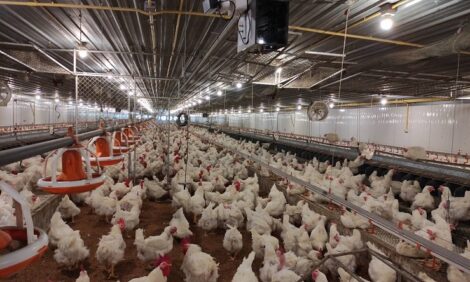



Weekly Overview: Focus on Asia
ANALYSIS – China’s poultry industry is to receive further government support to the tune of almost US$50 million to help them recover from the aftermath of the avian flu outbreaks earlier this year. There has also been a new food safety scare, this time in eggs. In India, chicken and egg prices are breaking records as the result of high feed prices and tight supplies while Bangladesh’s poultry industry is under pressure from cheaper imports, disease outbreaks and limited credit.The Chinese government has granted subsidies of 300 million yuan (CNY; US$48.54 million) to prop up the poultry sector as it struggles in the wake of the H7N9 bird flu virus.
The Ministry of Finance said the subsidies will be used to help poultry farmers stay in business, ensure their productivity and stabilise market supplies of poultry products.
The latest figures from the China Animal Agriculture Association indicate that the industry has recorded losses of more than CNY40 billion since the H7N9 influenza outbreak occurred in March.
The latest support follows the central government’s allocation of CNY600 million in subsidies to major poultry processing companies and breeders nationwide in May, which aimed to stabilise the industry.
In addition to the subsidies from the central government, 10 provinces, including Henan, Shandong and Guangdong, have issued beneficial policies to help the industry.
To prevent the spread of the H7N9 virus, the government had ordered the culling of poultry in some areas since March. It had also closed live poultry markets in order to reduce human contact with birds.
Also in China, the State Food and Drug Administration (SFDA) has started checking food companies in Jiangxi Province, following a recent TV report that exposed the preservation of eggs with copper sulphate.
Preserved eggs are a pungent appetiser usually served with pickled ginger or cooked in congee, become edible after duck eggs are preserved using an alkali, salt and clay for some two months. Copper sulphate speeds up this process but contains toxic substances.
Surging feed costs in India have driven broiler and egg prices to record high levels.
Broiler prices have surged to a record 100 rupees (INR) per kilo currently.
It has been suggested that the surge will actually benefit the poultry sector, which suffered a glut in supply and sporadic incidents of bird flu during the second half of 2012.
The price of an egg is approaching INR4 while layer birds are selling at INR70 per kilo – another new high.
Feed costs that account for one-third of the total input costs for the poultry sector, besides pricey vegetables and a ban on fishing on the West Coast are factors behind the price rise.
According to the President of the Broiler Coordination Committee (BCC), most poultry farm owners operated at a loss last year after maize prices rose 25 per cent and soybean meal prices more than doubled.
Following the bird flu outbreak in Bangalore, the broiler industry cut its output by 20 per cent from 10,000 tonnes a week last year. As a result of restricted supply and hatching holidays initiated by large companies, the price of poultry meat doubled in certain regions during the first four months of this year.
Industry sources are optimistic about the prospects for the 470 billion-rupee poultry sector that has been growing at between eight and 10 per cent annually. A recent market report forecasts domestic broiler meat demand to grow by the same annual rate in the long-term.
Table egg demand is expected to growing by four to five per cent annually as the result of growing urbanisation of the population.
The recent upward trend in key feed ingredient prices is not expected to reverse in the short term and even may go up higher in the coming weeks.
Poultry feed prices stayed unchanged last week, despite the rising prices of some ingredients.
A trade analyst commented that, if soybean meal and de-oiled mustard cake move up further, prices of concentrate feed prices will increase.
Turning to Bangladesh, the main challenges to the poultry industry have been identified as a lack of access to credit, competition from cheaper imports of poultry meat and frequent outbreaks of avian flu. These are threatening the very existence of this highly prospective sector.
In Pakistan, progress has been made on a spirochaetosis vaccine. Researchers have found an inactivated adjuvanted bacterin of Borrelia anserina was effective in protecting laying hens against spirochaetosis.








